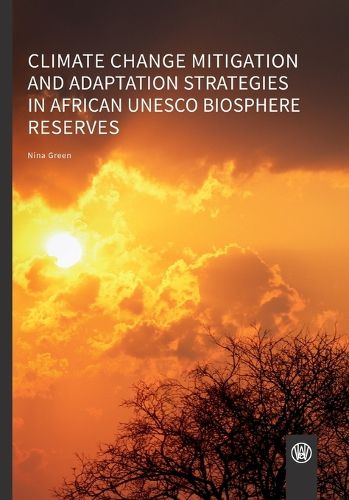Readings Newsletter
Become a Readings Member to make your shopping experience even easier.
Sign in or sign up for free!
You’re not far away from qualifying for FREE standard shipping within Australia
You’ve qualified for FREE standard shipping within Australia
The cart is loading…






This title is printed to order. This book may have been self-published. If so, we cannot guarantee the quality of the content. In the main most books will have gone through the editing process however some may not. We therefore suggest that you be aware of this before ordering this book. If in doubt check either the author or publisher’s details as we are unable to accept any returns unless they are faulty. Please contact us if you have any questions.
This study examined how biosphere reserves in Africa (AfriMAB) can better address climate change. It analyzed their institutional structures to identify strengths and weaknesses in achieving the CBD's 30x30 target for conservation. The research suggests improvements for biosphere reserve management, including increased UN support, project frequency, and budget allocation. It highlights the need for climate impact studies and improved communication between governments, reserves, and communities. This research fills a knowledge gap and paves the way for similar studies across other biosphere reserve networks.
$9.00 standard shipping within Australia
FREE standard shipping within Australia for orders over $100.00
Express & International shipping calculated at checkout
This title is printed to order. This book may have been self-published. If so, we cannot guarantee the quality of the content. In the main most books will have gone through the editing process however some may not. We therefore suggest that you be aware of this before ordering this book. If in doubt check either the author or publisher’s details as we are unable to accept any returns unless they are faulty. Please contact us if you have any questions.
This study examined how biosphere reserves in Africa (AfriMAB) can better address climate change. It analyzed their institutional structures to identify strengths and weaknesses in achieving the CBD's 30x30 target for conservation. The research suggests improvements for biosphere reserve management, including increased UN support, project frequency, and budget allocation. It highlights the need for climate impact studies and improved communication between governments, reserves, and communities. This research fills a knowledge gap and paves the way for similar studies across other biosphere reserve networks.